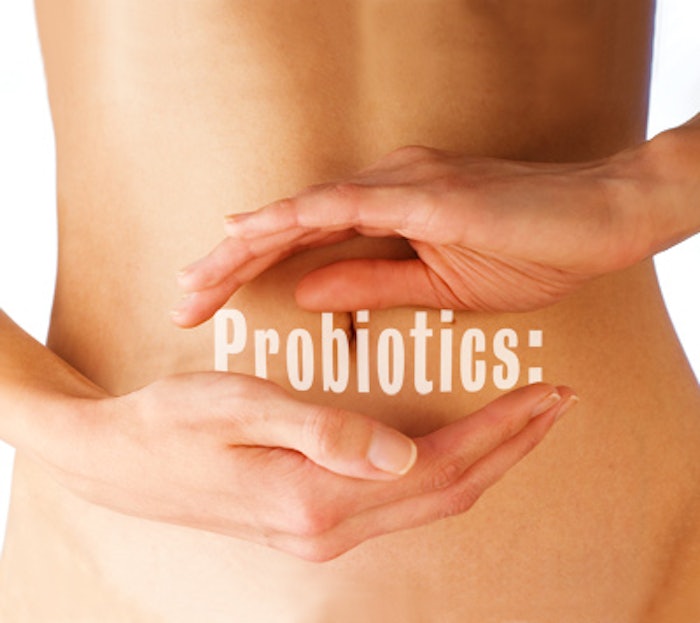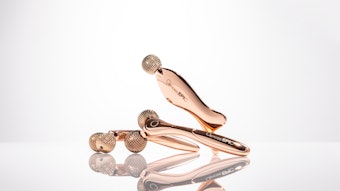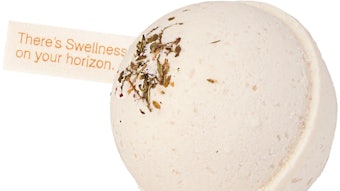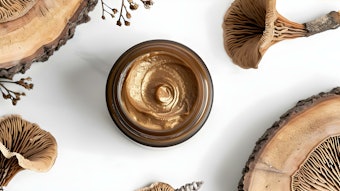
The pursuit of better health—particularly among the aging baby boomer population—has resulted in a growing awareness about the relationship between diet and well-being. People are living longer, and are actively seeking treatments and embracing lifestyle changes in order to enhance their lifespans, requiring improved nutrition, exercise and stress management. This ideology has also rubbed off on many of the members of the younger generations who have become more nutrition-savvy due to the explosion of information available in the media, particularly on the Internet. The preventive strategies of anti-aging are being expanded and even exploited by the food industry with the promotion of nutraceuticals and antioxidants, such as the inclusion of botanicals and green tea in foods. Even the cosmetics industry has begun including these substances in skin care product formulations. The belief is that these ingredients can penetrate the skin topically in order to nourish and prevent skin conditions. “Probiotics” is currently a buzzword in nutrition and anti-aging that is being heavily promoted by the food industry. Their health benefits are under intensive research, but most people are unclear about what they are, as well as the benefits of ingesting and applying them. Skin care professionals need to become knowledgeable about how probiotics affect a person’s health and complexion.
The weakening immune system
The decline of health during the aging process results in many people taking some form of drug or medication. The immune system is often significantly affected by these drugs, making the human body more susceptible to infections. Heavy medications, especially antibiotics, can destroy the microflora that grows along the gastrointestinal (GI) tract, particularly in the large intestine. In the spa, clients arrive daily with clogged, congested and unhealthy complexions. Most of these problems can be directly attributed to improper nutrition, indigestion and dietary intake, particularly acne and rosacea. A more holistic approach to treating the skin needs to be taken. Topical treatments, such as facials and body services, cannot alleviate certain skin conditions that are linked to deeper internal problems.
The GI tract
Macronutrients—carbohydrates, proteins and fats—are broken down by enzymatic action into smaller molecules, starting in the mouth and stomach and ending in the small intestine. The residue of digestion passes into the colon of the large intestine where water and essential minerals are reabsorbed, leaving the residue to be stored until it leaves the body in the form of feces. The waste matter consists of water, various gases and toxic wastes and, if it is not removed from the body regularly, the body becomes overladen with toxins. A strong immune system is therefore contingent on a healthy gut. The human colon contains approximately 500 different types of bacteria and, although most of them are harmless, some are beneficial with each strain of bacteria conferring different health benefits. The main beneficial bacteria are bifidobacteria and lactobaccilli. However, bacteria introduced into the body through improper diet, antibiotics, stress and other lifestyle factors are pathogenic and threaten the body’s health. It is important to maintain the proper balance of good and bad bacteria at all times in order to preserve a healthy digestive tract and strong immune system because a great number of microorganisms are lost routinely through daily elimination.
The body faces daily challenges in order to protect and maintain the physical lining of the intestine. In order to keep a healthy gut, the good bacteria, known as lactic acid-producing bacteria, should be increased while keeping the number of potential pathogenic bacteria low. Eating foods containing probiotics—or healthy bacteria—can help overcome this imbalance, and protect the intestinal flora from being reduced or destroyed.
What are probiotics?
The World Health Organization (WHO) defines probiotics as “live microorganisms which, when administered in adequate amounts, confer health benefits on the ‘host’ (GI tract) in the human body.” Both prebiotics and probiotics are natural components available in foods or supplements. Historically, probiotics have been cultured from dairy products, such as certain yogurts. Prebiotics, when taken in the diet simultaneously with probiotics, help feed the probiotics, thus accelerating their growth; this is a symbiotic relationship. Symbiotic foods have been used in Japan and Europe for a long time, but only recently have made press in nutritional news in the United States.
Prebiotics are ingestible ingredients found naturally in foods or synthesized from sucrose. Think of them as food for friendly bacteria because they stimulate the growth of a limited number of healthy bacterial species in the colon. For example, inulin and oligofructose are prebiotics found in the roots of the chicory plant that increase the density and metabolism of bifidobacteria and lactobacilli. In other words, prebiotics exasperate the effects of probiotics by feeding the probiotics in order to help them proliferate in the intestinal tract. In this way, a healthy ratio of microbial imbalance will be maintained.
Probiotics are being referred to as the latest anti-aging food and recently, in the health food industry, well-known stores are allocating a large segment of their shelves to display probiotics. Also, some food manufacturers are adding prebiotics and probiotics to natural foods, such as milk and eggs, in order to meet the demands of educated consumers seeking to optimize good health. When choosing the best probiotics, check the nutrition label to ensure that there are one billion bacteria per serving from one of the recommended active strains, including lactobacillus acidophilus.
Benefits of probiotics
The gut microflora plays an important role in the fermentation of fiber since this leads to the production of short-chain fatty acids. These help to increase blood flow to the colon and reduce the pH of food residue in the colon, thus preventing the growth of harmful bacteria. This strengthens the immune system, reducing the production of toxic poisons in the body. It is important to note that different strains of probiotic bacteria have different effects. Each probiotic strain is unique and affects different microflora independently. Some studies suggest that probiotics are effective in treating some forms of irritable bowel syndrome, a chronic digestive condition with no known cure. Other populations who benefit from probiotic supplementation are those with weak immune systems, such as babies, those with lactose intolerance and the elderly who tend to use high levels of antibiotics that eventually erode the protective lining of the intestinal mucosa.
Probiotics and the skin
The skin reflects the inner ecosystem of the body. If you are unwell from digestive disturbances, such as an upset stomach caused by food poisoning, your complexion may become sensitive, appear unhealthy, discolored, mottled and pasty. Conditions, such as sensitive and acneic skin, benefit from the consumption of foods with natural probiotics that will help the natural ecosystem within the body to be recovered, which is visible in skin health, as well. The addition of probiotics in your clients’ diets certainly is an anti-aging approach for preventive health and longevity. Several cosmetic companies are already planning to develop probiotic skin products in the near future.
Developing a broader knowledge of prebiotics and probiotics will prove to be greatly beneficial for those professionals involved in the wellness industry because the consumption of these functional foods should be a part of wellness and anti-aging programs. Keeping informed about the latest anti-aging strategies will help you help your clients who are interested in preventive health. On your next visit to your local health food store, check out the probiotics counter and try some to personally learn more about the latest buzzword in wellness therapy.
BIBLIOGRAPHY
JA Madden and JO Hunter, A review of the role of the gut microflora in irritable bowel syndrome and the effects of probiotics. British Journal of Nutrition 88 67–72
L Miles, Are probiotics beneficial for health? British Nutrition Foundation Nutrition Bulletin (2007)
S Salminen et al, Symposium: Probiotics that modify disease risk. The American Society for Nutritional Sciences Journal Nutrition 135 1294–1298 (May 2005)
K Bird, Probiotics supplements may help sensitive skin. cosmeticsdesign-europe.com (July 1, 2008)










